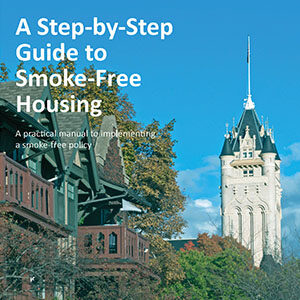Overview
Asthma is a chronic disease that affects your lungs. It causes repeated episodes of wheezing, breathlessness, chest tightness, and nighttime or early morning coughing. The CDC has determined the 1 in 12 people have asthma.
Basics
What is Asthma?
- Asthma is a lung disease that inflames and narrows the airways. Asthma causes recurring periods of wheezing, chest tightness, shortness of breath, and coughing. Indoor and outdoor air pollutants, stress, changes in temperature, colds and other infections, and exercise can trigger asthma attacks.
- Asthma is a chronic disease, like diabetes and high blood pressure. This means that once you develop asthma, you are likely to have it for a lifetime. Even when you are feeling just fine, the asthma is still there and can flare up at any time. A chronic condition like asthma requires daily attention.
How can you tell if you have Asthma?
- It can be hard to tell if someone has asthma, especially in children under age 5. Having a doctor check how well your lungs work and check for allergies can help you find out if you have asthma.
- The doctor will also do a breathing test, called spirometry, to find out how well your lungs are working. The doctor will use a computer with a mouthpiece to test how much air you can breathe out after taking a very deep breath. The spirometer can measure airflow before and after you use asthma medicine.
What is an Asthma Attack?
- An asthma attack may include coughing, chest tightness, wheezing, and trouble breathing. The attack happens in your body’s airways, which are the paths that carry air to your lungs. As the air moves through your lungs, the airways become smaller, like the branches of a tree are smaller than the tree trunk. During an asthma attack, the sides of the airways in your lungs swell and the airways shrink. Less air gets in and out of your lungs, and mucous that your body makes clogs up the airways even more.
What are some Common Asthma Triggers?
Allergens are substances that can cause you to have an allergic reaction. That is, in some people, the immune system sees them as “foreign” or “dangerous” and reacts in an exaggerated way to protect the body against them. Some common allergens are:
- Animal dander—scales or dried saliva from the hair, skin, or feathers of animals
- Dust mites—tiny bugs that thrive in mattresses, upholstered furniture, carpets, and stuffed animals
- Cockroach droppings
- Pollen from trees and grass
- Molds, both indoor and outdoor
Irritants are things in the environment that may irritate your lungs, such as:
- Cigarette smoke
- Air pollution, including ozone
- Cold air or changes in weather like freezing temperatures, high humidity, and thunderstorms
- Strong odors or sprays, such as perfumes, air fresheners, household cleaners, cooking fumes, paints, or varnishes
Asthma Attacks at Home
Spokane or Washington Specific Data
Recommendations
Indoor and outdoor environments play an important role in the development and management of asthma. Avoiding the things that bring on your asthma symptoms—your asthma triggers—is another important part of your asthma action plan.
Keeping your Asthma under Control
- Take your medicines as prescribed
- Avoid your asthma triggers (See list above for common asthma triggers)
- By working closely with your doctor or other health care provider, you should be able to learn how to control your asthma. And once it is controlled, you should be able to live a normal active life. When asthma is under control, you should have few, if any, asthma symptoms. That means:
Asthma and Exercise
- Regular physical activity is good for all of us, including people with asthma, but can also trigger symptoms either during or right after being active
- The good news is that if you have good control of your asthma, exercise should not be a problem for you. In fact, most people with asthma should be able to participate in any physical activity they like without having asthma symptoms. Your healthcare provider may recommend using an inhaler about 15 minutes before exercise. This usually can prevent and control exercise-induced asthma
1 in 12 people have Asthma - (CDC)

Smoke-Free Housing Toolkit
For landlords and owners, the business benefits of going smoke-free can translate into thousands of dollars.
